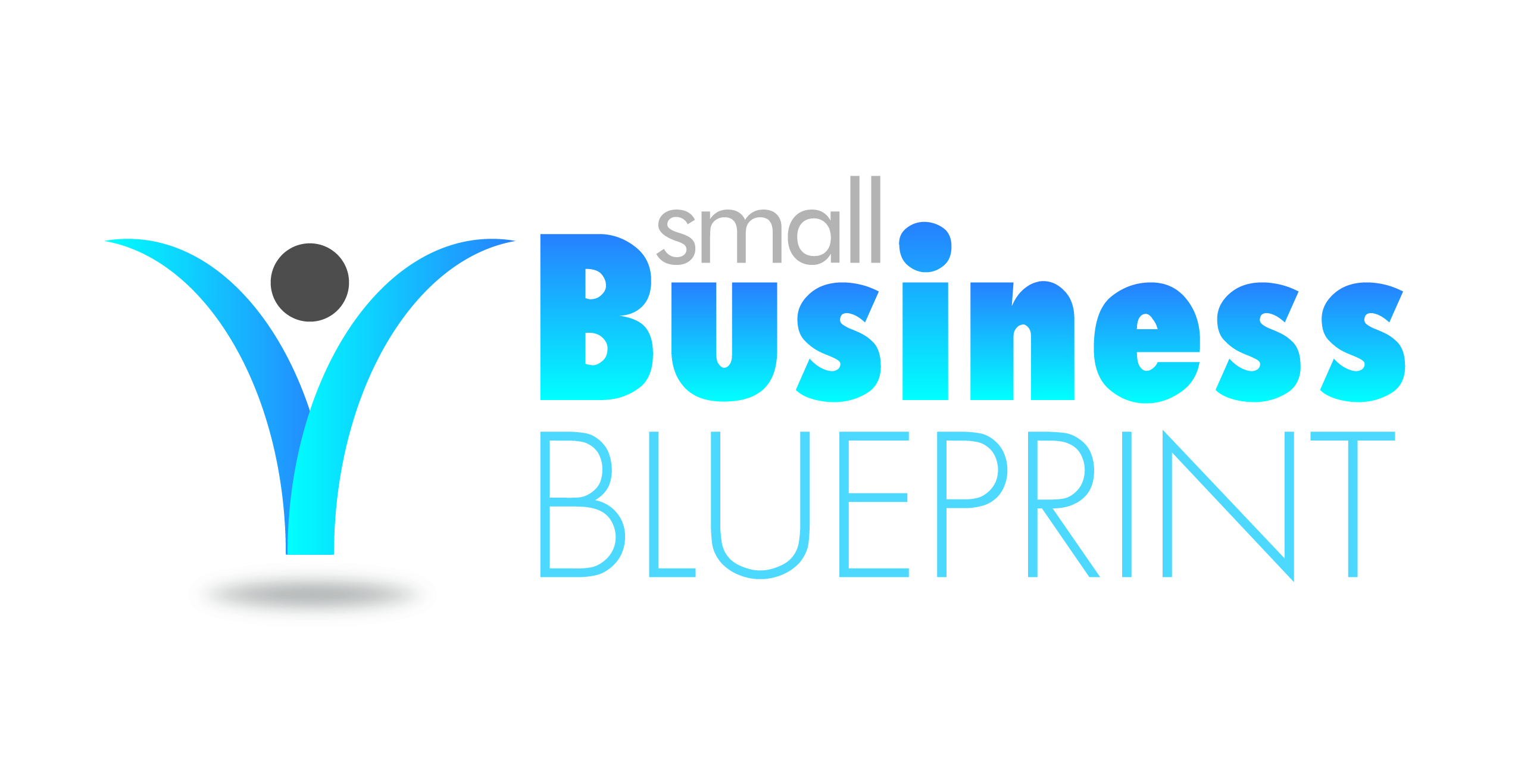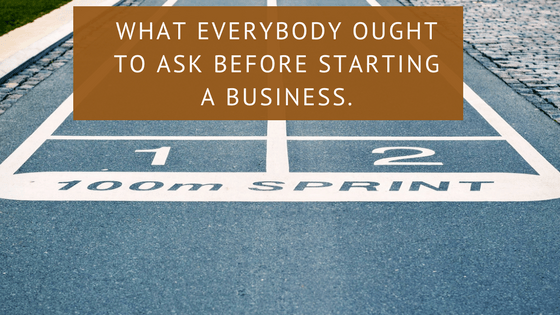Are you thinking or planning to start your own business?
Having your own business is not for everyone. Sometimes it can be a lonely position to be in. At times you can feel all alone and that no one understands you.
On the other hand, it can be the most exhilarating thing to do. When you are able to help people either through your product or services then it is great. Providing a solution to help people solve their problems is wonderful.
Let’s take a look at all the advantages, disadvantages, financing, industry and structure questions you should ask before you begin your business
Advantages
Going into business is always exciting. There are the obvious ideals of making money and being your own boss, but being a business owner also offers many other fantastic advantages.
Cash flow
A good business will produce positive cash flow, and the cash flow need not only be distributed to you as owner back can also be used to support other business activities and investments.
Dynamic cash flow
A business does not necessarily produce a static income. It has the potential to create much more income and cash flow then you might expect to receive from salary and wages.
Time freedom
A well set up business can offer its owner a sense of time and freedom that is unheard of for most employees. This can translate into more free time and greater flexibility of working hours.
Development of a capital asset
An established and successful business can be a highly marketable asset. The very act of doing business, building your customer base, recruiting and developing expertise and securing a place in your industry is creating a valuable asset. A business need not just be a place to work but can also be a part of your future financial independence.
Tax advantages of business
Often, we experienced frustration at hearing of the wealthy taking advantage of the business tax system. Whilst this may not be the case as such, there are many more tax deductions available to a business owner and greater flexibility available in terms of structuring and sheltering income from high individual tax rates.
Creativity
Do you work for a fool? A business can offer you the opportunity to use your own skill and creativity and take a more flexible approach to your getting the job done. This opportunity for creativity is one of the driving passions behind many who enter into business for themselves.
Develop your skills
Being successful in business is rarely solely a result of what you know. Rather, the willingness and desire to learn what sets apart a successful business person from one who fails. The opportunity to learn and develop your skills is ever present in any business.
Ownership and motivation
Ownership generates motivation. You will be motivated to perform at your best if you have ownership of the business. Motivation is generally less common problem for those with their own business.
Control
We business ownership comes a need to make decisions and with it, greater control of your own destiny, and appealing factor for almost everyone who considers entering into business.
Disadvantages
Risk
There is undeniably more risk in being the owner of a business than in working the one. This risk at its bare bones can translate into losing all of your original investment and perhaps more.
Sole responsibility
You may have heard someone joke it’s lonely at the top. To some people this is true and the responsibility is just too much. Others thrive on the challenge and power that this brings.
Pressure
There is, of course, a certain amount of pressure involved in running a business. Pending payments, such as staff wages being paid on time. An employee will not face many of these business pressures.
Time commitment
The start-up phase of a business requires a large time commitment from its owner. It is important to keep in mind that this might pose difficulties for someone with heavy family, community or other commitments.
Comfort zone
While dependent on the individual, starting a new business will take most people out of their comfort zone, causing additional pressures and burdens. Having the ability to cope with these pressures is an important factor to consider.
Broad skills requirement
A willingness and desire to learn are essential to being successful in business. Skills in the areas of sales and marketing, staff management, and record-keeping required by any business owner, as well as those skills specific to their chosen industry.
Market research
The importance of doing your research and ensuring you establish the right business can’t be overstated.
Many choose to enter an industry in which they have been working for some time. In this case, the knowledge they have acquired over the years acts as a great starting point. Keep in mind that no one knows everything. If you enter an industry without much experience than the process of learning or you can is even more important.
If you have some good industry contacts, advisers or mentors you trust, then seeking their advice is the place to start. When seeking advice it is important to remember that a good accountant can be your most valuable asset, however, nothing can cost a new business more than bad accounting advice. A good accountant should be able to assist you with tax issues, business structures, funding requirements and options and compliance issues.
When it comes to research, it is imperative that a number of issues are covered. These include:
Target market
Is your intended market expanding or shrinking?
Who are your potential customers?
How difficult will it be to break into the industry and develop customer relationships?
Are their long-term industry relationships that may prevent you from winning customers?
Product/service
What are the main selling points of your product or service?
How often can you sell your product or service to your customers?
How will you distribute your product or service to your customers?
Location
Do you have the right location for your business?
Is there room for expansion?
Should you lease or buy? If leasing, how might the terms and conditions of the lease affect your business? How might the arrangements affect your personal life and asset base if the business should fail?
What will be the expense of fitting out the location? How much time will it take?
Suppliers
Who are your suppliers?
What costs are charge what your suppliers?
Are they reliable?
How easy will it be to obtain supply?
Equipment
Is equipment you need ready and available?
What costs and other requirements are involved in the servicing and repair of your equipment?
Will you be able to source spare parts for the equipment?
Is equipment you by going to become obsolete or will it soon be out of date?
Do you know how to operate the equipment?
Do you or your employers require any special skills to operate the equipment?
Could you give buy with second-hand equipment?
Should you lease or buy the equipment?
Personnel
How many employees will you need?
What skills to the required?
Are they easy to find? Train and replace?
Do we need to establish a succession plan to protect your business against the loss of key employees?
What will your staff cost? Include wages, workers compensation, insurance, superannuation and penalty rates.
What are your legal obligations as an employer?
Is there a union or employee satiation in your industry?
Financing
You need the cash upfront or can you operate on credit? If so, what are the terms?
How much capital will you require?
How will you raise the necessary capital? Consider how much you should borrow compared to your personal contribution.
Can your personal financial situation absorb potential debts if the business does not progress as hoped?
Competitors
Who are your competitors? What are their strengths and weaknesses? How will your competitors react to your presence in the market? Do you have the resources to fight your competitors? Consider what would happen in a price war.
What are your distinctive characteristics compared to your competitors? While customers buy from you and not your competitors?
Business structure
We are a sole trader, partnership or limited liability company?
What is the best structure for attacks, legal and asset protection perspective?
Regulations
Do you need a licence or permit to operate in the industry?
What laws govern the industry?
Are there are any industry carriers of conduct that could affect you?
This list is by no means exhaustive but it should help you with some structure and direction for your research. Ideally, you will be out to investigate and document most of the points in this list. Other issues may also become apparent as you work your way through.
Where can I get this information?
The number of ways you can soar sure market information is virtually unlimited here are some ideas to get you started
People in the industry
If you can, make contact with people within the industry and seek their advice. Potential competitors are unlikely to be willing to assist however supplies and people outside your immediate market may well be able to help. Suppliers, in particular, can be interested in talking to and advising you as a will no doubt identify an opportunity to improve their bottom line by winning you as a customer.
Calling an existing business in your industry and posing as a customer will assist in giving you a realistic idea of prices, terms and levels of service currently available in the market. Pricing and distribution issues also need to be a vital part of your research.
Networking
Networking can open many doors to help you research joining a business organisation such as the Chamber of Commerce or rotary or even a specialist industry body can assist you in making contacts that will be invaluable to your business.
Other groups offer regular networking meetings, seminars and workshops. Pick events that suit you and set objectives what you want to get out of them. The clear you are on why you are going, the more likely you will achieve effective results. Don’t expect to speak to everyone. Be content with quality conversations with people who remember you. Remember, the best networkers are great listeners.
Market research organisations there are many ways to research and market with the development and power of the Internet you can research any think anywhere anytime on anyone.
Professional Advisors
Professional advice on legal and financial matters will almost certainly be necessary for establishing your business. An upfront investment put aside for dealing with professional advisers on these matters can make a big difference down the track.
For example, imagine if you got up and running and were making great progress only to find that the business name you are trading under was already taken and the original owner wanted to sue! A solicitor and accountant can help with this as well as advise any other issues.
Such as insurance and rego requirements, lease negotiations, business structuring and advice on any government assistance could be available.
A competent accountant’s responsibility is to guide and assist you with practical business advice on tax issues, budgets, financing requirements, cash flow forecast, risk issues, business structures, compliance and record-keeping.
Should I buy, establish or join?
The next important step towards getting into business is to decide whether to start from scratch by into an existing business. Again, there are advantages and disadvantages to each course of action some of these include:
Buy
The standard benefits of purchasing a business are:
An established customer base
The possibility of an immediately viable operation with positive cash flow
Key staff and skills may really be in place
However, purchasing an existing business can sometimes subject due to these disadvantages:
A large upfront cash outlay. This is especially true with the business has been successful in the past and has an established customer base.
The purchaser can suffer from inefficiencies created by the previous owner’s decisions and inherit their poor systems. An example of this would be a long-term premises lease in a less than optimal location or long-term binding contracts with suppliers are too high a price.
Just like buying a used car it is very difficult to be sure just what you are getting. The financial history of a business may not be indicative of its future or the history may not have been as rosy as you have been led to believe.
Establish
While it may sound more intimidating, starting a new business from scratch has the following advantages:
A smaller upfront investment to get started
Lower risk initially due to the low set up costs
The opportunity to design the business to fit your own strategic plan
Poor systems and problematic contracts can be avoided, and your location and staffing decisions, for example, can be made to fit your exact market requirements.
The chance to explore new ground or test your new ideas.
Inevitable though is the fact that it can also have its complications:
No established customer base media will take some time to build the business and become cash flow positive
The necessity for a substantial sales and marketing effort and ongoing investment to build a business
A lack of systems could lead to mistakes in the early stages
Join an existing business
Joining an existing business is in many ways similar to buying a business outright, however, there is, of course, the advantage of additional support and all the owner’s responsibilities are shared.
The complications to be considered are:
Limited power and control over shared decision-making
The possibility that you may become liable for previous actions of the business
Relationship and personal conflicts with co-owners
Restrictions on the sale of your share may include a requirement for remaining owners to agree on the purchaser.
Purchase a franchise
Franchises have become big business in recent years. There are great advantages in buying a franchise such as:
Ready-made systems and templates
Set of key skills are already provided to you
Can establish support network from head office and other franchise owners
Immediate brand and market recognition, hence a reduction in your start-up marketing effort
Potentially, an established customer base
Among the disadvantages however are:
Limited opportunities to utilise your creativity and test your own ideas
Pricing and costs of operating set by the head office, possibly resulting in lower returns
A business plan for the future may already be set out for the business resulting in lack of control. The realisation that you may actually have bought yourself a job rather than a real business.
Which method do I choose?
The method you choose from entering a business will need to be based on a combination of:
Your personal preference and desire in relation to making your own path and working with others
The level of financing you have available
Your skill set
Sometimes a decision may really be made for you if the industry you’re entering is a new one and there are no existing businesses to buy or join.
Photos by:
Photo by William Stitt on Unsplash





